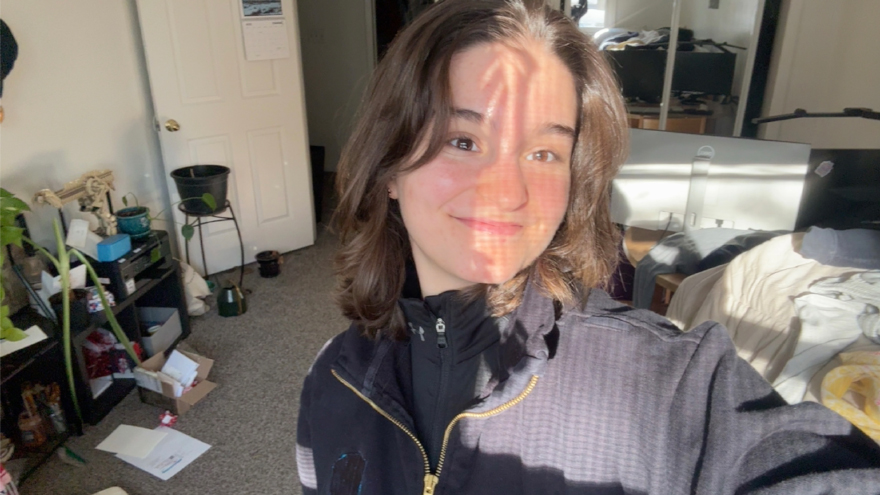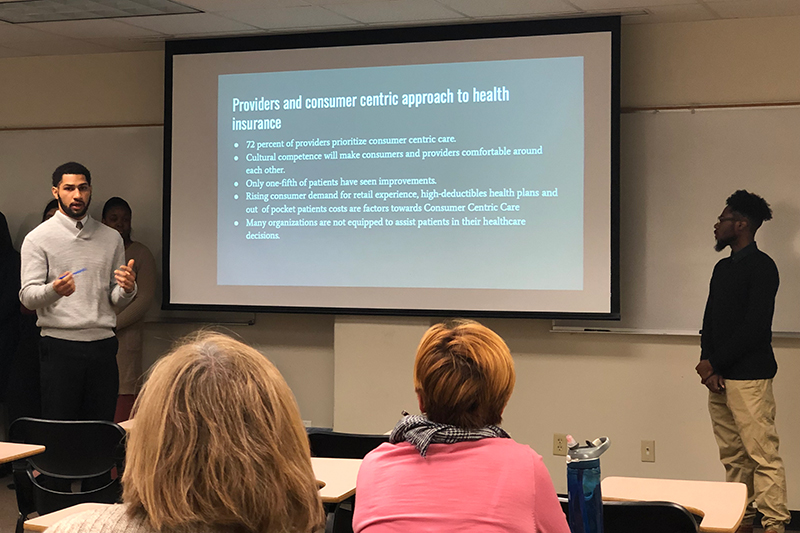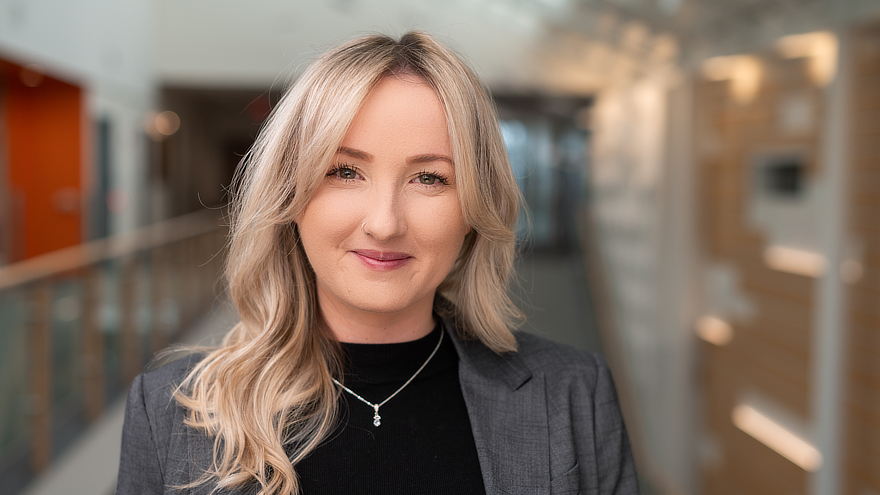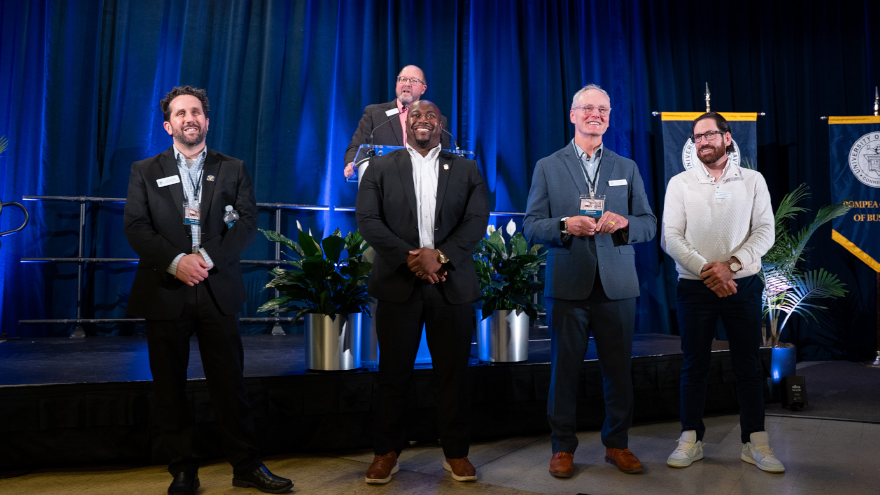
The Charger Blog
Charger Blogger Enters Final Semester with Excitement and a Plan
Beatrice Glaviano ’26 reflects on EMT life, learning assistant work, and what she hopes to carry into her final semester.
The Charger Blog
As part of an innovative capstone experience, students worked with a leading healthcare company to examine how blockchain – a complex database of digitized "blocks" that store information – could address many of the challenges facing the healthcare industry.
June 19, 2019

When Jennifer Jacque ’20, a health sciences major, and her classmates started their health sciences capstone course, they had never heard of blockchain, a cutting-edge technology that can improve the efficiency and security of data sharing in the healthcare industry.
By the end of the course, though, they were providing recommendations to SimplyVital Health, a healthcare company recognized by Forbes and Newsweek for its use of blockchain, about how the technology could be used to address many of the challenges facing the healthcare industry.
"The best part about working on the project was learning about blockchain technology itself, since healthcare technology is always evolving," said Jacque, who along with her classmates completed a blockchain in healthcare certification course. "This project encouraged us to identify the ‘problems’ within healthcare and to recognize that it will be students such as us who will work to find the answers."
Associate professor Karl Minges, Ph.D., the students’ instructor, says the project provided his students a wonderful opportunity to apply the skills they had been building in a "real-world" scenario.
"I was thoroughly impressed with the students’ ability to synthesize complex information into a comprehensive assessment of the potential of blockchain to disrupt the health insurance industry," said Minges. "The students thought carefully about the legal implications and the challenges of using blockchain technology in health insurance, especially in considering who owns the data. They earned their ‘A’ on the capstone presentation."
"This project encouraged us to identify the ‘problems’ within healthcare and to recognize that it will be students such as us who will work to find the answers." Jennifer Jacque ’20
Offering a way to make electronic medical records more secure and accessible, each "block" of blockchain stores information and involves multiple levels of authentication. The digitized blocks are linked together using cryptography, creating a complex database that offers a high level of encryption and protection.
Glenn McGee, Ph.D., a professor and expert in bioethics, says learning about blockchain is an important and exciting opportunity for health sciences students.
"The School of Health Sciences is one of the first healthcare colleges in the nation to require training in blockchain for all undergraduates," said McGee. "It is incredible that the students in the capstone class worked with one of the top three companies in healthcare blockchain."
"One of our strengths is that we give students the competencies to succeed in a healthcare industry that is rapidly changing due to technologies like blockchain."Summer McGee, Ph.D., dean of the School of Health Sciences
Students presented their briefings to Kat Kuzmeskas, co-founder and CEO of SimplyVital Health, via Skype, as well as to faculty members, including Summer McGee, Ph.D., dean of the School of Health Sciences.
"The School of Health Sciences offers students unprecedented access to healthcare organizations – such as SimplyVitalHealth – that are changing healthcare delivery for the better," she said. "One of our strengths is that we give students the competencies to succeed in a healthcare industry that is rapidly changing due to technologies like blockchain."
Marc Wong ’19, who researched how blockchain can make the healthcare system more patient-centric, says the project – and the program as a whole – gave him an important window into the future.
"The most important thing I learned was that the current healthcare system is flawed, but that it can be improved with technology that already exists and is prevalent in other industries," he said.

The Charger Blog
Beatrice Glaviano ’26 reflects on EMT life, learning assistant work, and what she hopes to carry into her final semester.

The Charger Blog
Katelyn Beach ’25, ’26 MBA reflects on her hands-in collaboration with the program’s founder and how Uccountability’s goal-setting and peer-based model can shape student growth, leadership development, and community at the University of New Haven.

University News
New University-wide council will advance strategic partnerships, immersive student opportunities, and innovative research, supporting the University’s strategic plan the development of its pioneering Center for Innovation and Applied Technology.